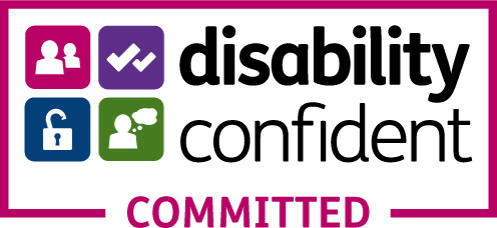Social media and your job search
Most people have at least some social media presence these days, from close friends and family on Facebook, to a wider network on Twitter, or professional contacts on LinkedIn.
A lively social networking presence can be a bonus for some job applications – it shows you are communicative, personable and in touch with the wider world – and can even be mandatory for some jobs in PR and other communication roles.
But there’s a fine line between being a social butterfly or a soapbox crusader online. Your online presence, that untouchable bastion of free speech and expression, could actually get you in hot water with prospective employers. If you don’t monitor what you post and share online you run the risk of facing an uncomfortable line of questioning about it at your next job interview.
In this blog, we’ve put together some simple guidelines for optimising your social media profiles for jobhunting and we show you how you can use social media to find the job of your dreams.
Do’s and Don’ts of jobseeker social media
Do maintain active social networking profiles, especially on professional networking sites like LinkedIn, and use them to follow up on any opportunities you come across.
Don’t publicly talk about a job before you have signed a contract of employment – and even then be very careful about what you say, as you don’t want to have your employment withdrawn.
Do use social media to research prospective employers – their public profiles may give an insight into the company ethos, or something to ask about during the “any questions?” stage of your interview.
Don’t bombard companies’ profiles and pages with “gisajob” messages, as this can look insincere and even desperate to any prospective employers who look up your recent posts.
Do consider making your Twitter profile private or ‘curating’ (i.e. deleting) any of your more controversial recent posts until you land your job – just in case.
Don’t post messages in public that you wouldn’t want to defend later – keep unpopular opinions to Direct and Private Messages with friends, and stay professional on your public pages and profiles.
Social media audits: Assess, Balance, Curate, Delete
If you’re concerned about the impression your social networking presence might give, especially on more public networks like Twitter, or even on multimedia sites like YouTube, Vine and Instagram, adopt the ABCD approach to auditing your profiles.
Assess what you’ve already published – is any of it controversial? Has the political climate changed since you posted it? Would you still agree with your former posts, or be able to defend them if challenged?
Balance your views – on some social networks you may be able to do this by editing past posts, or by adding to your profile to put extreme-sounding opinions into better context.
Curate your overall online presence. Unfollow or even block any extreme and controversial accounts you may have interacted with in the past, or delete any past tweets of your own that got retweeted by a major controversial profile.
Delete anything else you wouldn’t want a prospective employer to see. Most social networking is short-lived in terms of its audience exposure, so deleting past messages is unlikely to harm your profile overall, but could help to remove an employer’s best reasons to not give you the job.
Social gardening
Finally, once your profiles have been pruned, maintain a green-fingered approach to cultivating your job prospects via professional and personal social networks alike.
Post or retweet messages about interesting developments in your chosen field, and interact with companies you would like to work for.
Occasionally asking about recruitment policies or whether there is any work available should do no harm, as long as those sorts of messages don’t dominate your public profile.
In the meantime, keep a few useful searches open for relevant company names and ‘vacancy’ or ‘opportunity’, and other such terms.
When you come across an advertised opportunity, or when sending over a CV speculatively, visit the company’s website and follow their usual recruitment channels.
You can then follow up via social media if you want them to associate your application with your social networking profile – but make sure you have sent your CV and cover letter in the ‘normal’ way too, so your application doesn’t get missed.
Keep all of this in mind throughout your jobsearch, and you maximise your chances of landing a dream job with the employer of your choice – without giving them any reason to turn you down at the interview stage.
Our Awards and Accreditations













 03333 235 900
03333 235 900 Login / Register
Login / Register
